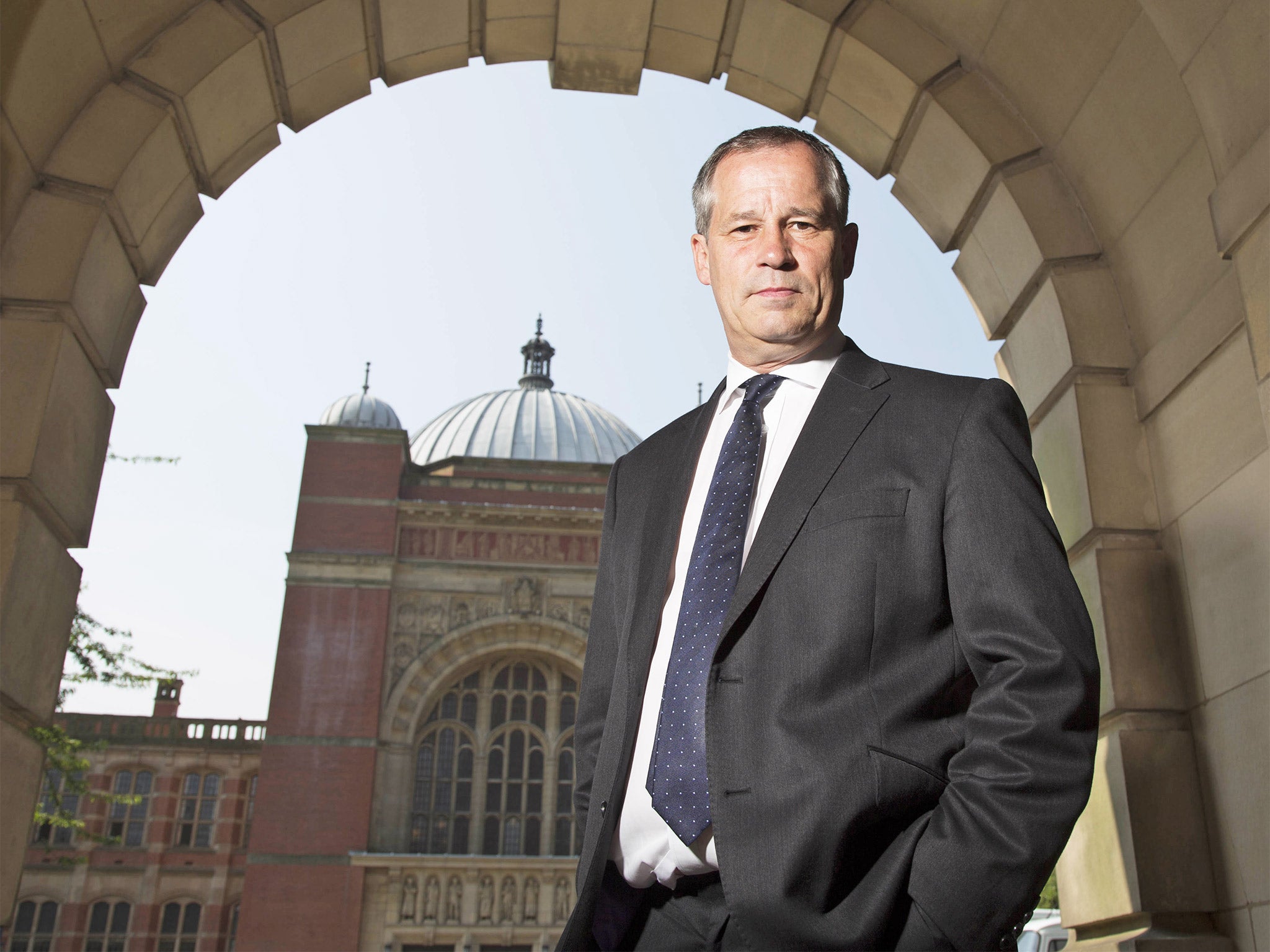University of Birmingham-run state school to offer ‘£30,000-a-year standards’ to pupils
First project of its kind promises disadvantaged children the highest level of education

Your support helps us to tell the story
From reproductive rights to climate change to Big Tech, The Independent is on the ground when the story is developing. Whether it's investigating the financials of Elon Musk's pro-Trump PAC or producing our latest documentary, 'The A Word', which shines a light on the American women fighting for reproductive rights, we know how important it is to parse out the facts from the messaging.
At such a critical moment in US history, we need reporters on the ground. Your donation allows us to keep sending journalists to speak to both sides of the story.
The Independent is trusted by Americans across the entire political spectrum. And unlike many other quality news outlets, we choose not to lock Americans out of our reporting and analysis with paywalls. We believe quality journalism should be available to everyone, paid for by those who can afford it.
Your support makes all the difference.Britain’s first state secondary school to be based in a university will open next summer, offering private school-standard education to local students for free.
The University of Birmingham School aims to give its pupils – many of them from disadvantaged homes in the city – the kind of learning experience they would enjoy if they could afford fees of £30,000 a year.
Teachers at the school will be paid an extra £1,700 a year to give every pupil five hours of “enrichment” every week on top of their core academic studies.
This will mean that the students will have a 30-hour week rather than the traditional 25 at most state schools, but the extra hours could include joining a debating society, a sports or drama club, or entering for the Duke of Edinburgh’s Award.
The school day will run from 8.30am until 4.30pm – with two afternoons set aside for the enrichment lessons which will help build up the kind of CV for its pupils that university admissions staff and employers have been asking for.
Michael Roden, the school’s head, said: “We aim to give the kind of education that other parents pay £30,000 a year for.”
Based in the University of Birmingham, the school will have access to the facilities of one of the country’s leading Russell Group universities
It will run as a training school – employing trainee teachers who will learn in the job and also have access to the first-class training facilities at the university’s School of Education.
The University of Birmingham School will operate as a free school, run by a trust set up by the university, and open on a £23m site at the former Selly Park teacher-training college.
“It will be completely comprehensive in its intake,” said Mr Roden. “It will take in 75 pupils a year based on proximity to the school’s South Birmingham location – plus 25 each from three railway stations representing areas of the city where there is the biggest population growth – the Jewellery Quarter, Small Heath and Hall Green. The nearer you are to the station, the better your chances [of getting in].”
In its first year of operation it will only take in first-year secondary pupils – but has already attracted 951 applications for 150 places.
It is also recruiting to the sixth-form – which will be selective in its intake with pupils having to achieve five A* to B grades at GCSE plus A-grade passes in the subjects the pupils intend to pursue to A-level. Already it has had 125 applications for places.
The project has received enthusiastic support from the Department for Education, and Birmingham was one of several universities interested in the idea of running their own training schools. Others are expected to follow in Birmingham’s wake in the near future.
Professor Sir David Eastwood, vice-chancellor of Birmingham University, said: “It will be the first of its kind – a purpose-built school on a university site. It will focus on a high-quality curriculum with academic strength.”
Social mobility: Other school schemes
The University of Birmingham School is the latest attempt to ensure pupils from disadvantaged homes get the best chance of obtaining a place at one of the country’s leading universities.
Previous schemes include the setting up of the London Academy of Excellence in Stratford, east London. The school – supported by the likes of Eton, Highgate School and Brighton College – is operating as a magnet for the brightest pupils in the area.
In addition, the Stem 6 academy in Islington offers students the chance to study a Stem subject (science, technology, engineering and maths) to improve their chances of getting a place at a leading university. The charity responsible for launching the academy is also involved with a similar project in Croydon, south London.
Join our commenting forum
Join thought-provoking conversations, follow other Independent readers and see their replies
Comments